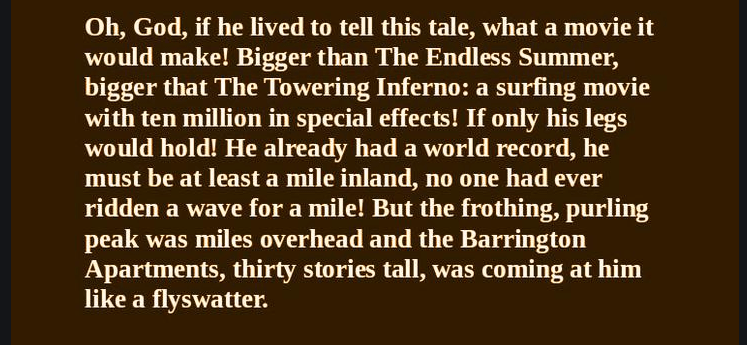Doing It Well And Truly
I’ve always been a reader of science fiction. In particular, the kind of science fiction where knowledge and competence make a difference. Stories like Andy Weir’s The Martian. Or Lucifer’s Hammer. There’s nothing magical or particularly special about the protagonists, they’re just competent. And lucky. And most importantly, they do the thing. They do it well and truly. But most importantly, they do it. The don’t (only) talk about doing it. They don’t (only) talk about how important it is that it get done. They don’t (only) wish someone else do it for them. They don’t (only) complain about who’s not doing it. They just roll up their sleeves and do it.
Most of Lucifer’s Hammer is about how different groups of people prepare for, survive, then move forward after a comet hits the Earth. They don’t complain about it (too much). They don’t wait for others to do something for them. They plan, they execute, they adapt, and they move forward. Lots of folks have read the book, and different people remember different parts of it. But almost everyone remembers Gil, the surfer. His choice on that day was to do what he loved, which was surfing. So he was out on the ocean off the shore of Santa Monica when the comet hit. When that happened, instead of giving up, he did what he did best. He decided to surf the tsunami. The last thing we get in the book is Gil thinking about the story he could tell if he survived.

Sure, Gil was thinking about going out in style at first, but he realized that Doing it well and truly might actually get him out of it alive. In a an extra last chapter that was published in Analog almost 40 years after the book, it turns out, he did survive. Once again we see that doing the thing, instead of just talking about it, makes a difference.
As in art (and life), so in development and career. If you see something you think needs to be done, but no one is doing it, think about it and figure out why. It might be like Chesterton’s Fence. There really is a good reason, it’s just not obvious to you. It might be because of priority. Or, it might be that it just hasn’t been important enough to anyone. That’s where doing the thing becomes important.
If it’s important to you, you have (or can find) the time, and there’s not a good reason not to do it, then do it. You’ll be happier. Chances are others around you will be happier. And people will see you as someone who gets things done. Any of those is a good enough reason. Together they’re a great set of reasons.
There are lots of things that sound like doing the thing, but they’re really things that aren’t doing the thing. They don’t get things done. They don’t make you happier. They don’t make others happier. They make you look like a complainer or a procrastinator instead of a doer. The key thing here is to keep the difference in mind. It might be fun to do things that aren’t doing the thing. It’s probably easier to do those other things than it is to do the thing. You might even get more support that way. However, you won’t get the thing done. And that’s the most important thing to remember. If you’re trying to get a thing done, you have to do the thing.
So the next time you find yourself in a situation where you have a choice between doing the thing and not doing the thing, think about what you want, what’s important, and if it’s your choice. Then, do the thing, and do it well and truly.
